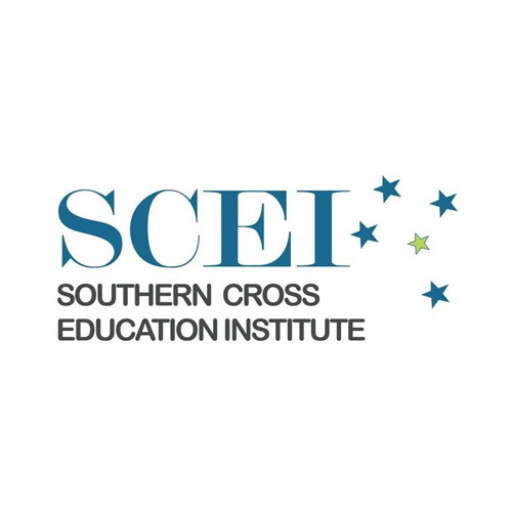Photos of university / #universityofga
Description: The Infectious Diseases program at the University of Georgia is a comprehensive academic offering designed to equip students with in-depth knowledge and practical skills necessary to understand, prevent, and manage infectious diseases. This interdisciplinary program integrates coursework from microbiology, epidemiology, immunology, public health, and clinical medicine to provide a well-rounded education. Students will explore the biology of pathogens such as bacteria, viruses, fungi, and parasites, gaining insights into their mechanisms of infection, transmission, and control measures. The curriculum emphasizes both laboratory research and field studies, preparing graduates for careers in medical research, public health policy, epidemiological surveillance, and clinical practice. Through rigorous coursework, hands-on laboratory experiences, and internships, students learn to analyze disease outbreaks, develop strategies to contain and prevent infections, and contribute to the development of vaccines and therapeutics. The program also focuses on emerging infectious diseases, antibiotic resistance, global health issues, and the socio-economic impacts of infectious diseases. Faculty members are actively involved in cutting-edge research projects, providing students with opportunities to participate in innovative investigations and contribute to advancements in the field. By completing this program, students will be prepared to work in healthcare settings, government agencies, research institutions, or pursue further graduate studies. Graduates will possess the critical thinking skills, scientific expertise, and practical competencies needed to address complex infectious disease challenges locally and globally, making a meaningful impact on public health and disease control efforts worldwide.
Overall, PhD students must accrue 20 credits in 8000 level or higher courses, independent of research and dissertation writing courses (IDIS 9000 and IDIS 9300).
Semester 1 (ILS-fall)
Students entering through the ILS program will take common courses with all entering students in semester one.
- GRSC 8000: Research Techniques in Integrated Life Sciences (7 cr.) [three 6 week long ILS rotations through departmenal labs]
- GRSC 8010: Professional Development for Integrated LIfe Sciences Students (1 cr.) [7 week minicourse, taught in first half of semester]
- GRSC 8550: Responsible Conduct of Research (1 cr.) [7 week minicourse, taught in second half of semester]
- GRSC 8020: Critical Reading of the Primary Scientific Literature (2 cr.)
- Plus One Elective Course:
- GRSC 8015: Biological Data Management (2 cr.)
- CBIO 8080: Biomedical Grant Writing (3 cr.)
- GRSC 8200: Communicating Research and Scholarship (1 cr.)
(Satisfies 4 of 20 credits required by Graduate School)
Semester 2 (spring)
The ID curriculum begins in semester two after students have chosen their thesis lab in the department.
- IDIS 6100: Immunology (3 cr.)
- IDIS 8010: Advanced Infectious Diseases (4 cr.)
- IDIS 8160: Infectious Diseases Seminar (1 cr.)*
- Journal Club (1 cr.)
- IDIS 9000: Doctoral Research (up to 9 cr.)
(Satisfies 6 of 20 credits required by Graduate School)
*NB: the department allows only 1 ID Seminar credit to count toward the required 20 credits for the degree.
Remaining Required Courses
- BIOS 7010: Introductory Biostatistics I (3 cr.) (or POPH 8310L: Population Health Medical Statistics I, offered summer semester odd years)
- IDIS 8160: Infectious Diseases Seminar (1 cr.) The department allows only 1 ID Seminar credit to count toward the required 20 credits for the degree. Enrollment through semester 4 or until admission to candidacy, whichever is later is required. Attendance required regardless of enrollment.
- IDIS 8170: Graduate Research In Progress (1 cr.) The department requires that students take this course in semester 4 and spring of year three. Enrollment during year four is optional.
- Journal Club – The department requires that students take at least three of the five offered departmental Journal Clubs. Additional enrollment in Journal Club per student’s Advisory Committee recommendations.
- Journal Club Options
- IDIS 8550: Special Topics in Immunology (1 cr., every year spring and fall)
- IDIS 8540: Special Topics in Bacterial Pathogenesis (1 cr., every year fall)
- IDIS 8250: Special Topics in Parasitology (1 cr., every year spring)
- IDIS 8590: Special Topics in Disease Intervention (1 cr., every year spring and fall)
- IDIS 8050: Special Topics in Ecology and Evolution of Infectious Diseases (1 cr., odd years fall)
- IDIS 9000: Doctoral Research (up to 9 cr.)
- GRSC 7770: Graduate Seminar on Teaching (1 cr.) (Optional)
This course is for students who are planning on TA-ing and can be taken in the same semester that a teaching assistantship begins.
*NB: the department allows only 1 ID Seminar credit to count toward the required 20 credits for the degree.
Other required courses typically satisfied during first two years:
A minimum of one 8000-level (3 or 4 credit) elective, as per student’s Advisory Committee recommendations. Please see recommended elective courses below. Other departments such as CBIO, VPAT, VPHY, MIBO, GENE, BCMB, etc., also offer suitable courses.
(Satisfies 3-4 of 20 credits required by Graduate School)
Recommended Elective Courses
- IDIS 7200-7200L: Veterinary Parasitology (3.7 cr., fall, POD)
- IDIS 7215-7215L: Large Animal Parasitology (1.3 cr., spring POD)
- IDIS 8020: Vaccines: From Design to Development (3 cr., odd years fall)
- IDIS 8030: Parasites and Parasitic Diseases (3 cr., even years fall)
- IDIS 8080L: Advanced Molecular Techniques (3 cr., even years maymester)
- ECOL(IDIS) 8140L: Research Methods in Disease Ecology (4 cr., even years fall)
- IDIS 8300: Advanced Immunology: Innate Immunology (3 cr., odd years spring)
- IDIS 8350, Principles and Research Applications of Flow Cytometry (3 cr., odd years fall)
- IDIS 8591: Advanced Concepts of Virology (3 cr., even years spring)
- CBIO 8080: Biomedical Grant Writing (3 cr., contact CBIO for schedule)
- CBIO(IDIS) 8100: Advanced Immunology (4 cr., even years spring)
- CBIO 8500: Biology of Parasitism (4 cr., even years spring)
- EPID(ECOL)(IDIS) 8515: Modeling Infectious Diseases (4 cr., every year fall)
- MIBO(PBHL)(IDIS)(BHSI) 8260: Global Perspectives on Tropical and Emerging Infectious Diseases (1 cr., even years summer)
- POPH(IDIS)(MIBO) 8200: Molecular Virology and Experimental Design (5 cr., every year spring)
- BCMB(CBIO)(GENE) 8112: Advanced Genetics, Cell, Biochemistry, and Molecular Biology I (4 cr., every year spring) [DNA/RNA/proteins/metabolism]
- BCMB(CBIO)(GENE) 8212: Advanced Genetics, Cell, Biochemistry, and Molecular Biology II (4 cr., every year fall) [membranes/signalling/cell transport/cytoskeleton/cell cycle/energetics]
- POPH(MIBO)(IDIS) 6450/6450L: Microbial Genetics and Genomics (4 cr., every year fall)
- POPH(MIBO)(IDIS) 6650: Introduction to Virology (3 cr., every year fall)
Each Summer (until dissertation writing commences)
- IDIS 9000: Doctoral Research (up to 9 cr.)
Dissertation Writing Requirement
The Graduate School requires 3 hours IDIS 9300, Doctoral Dissertation, typically taken the semester prior to graduation. This course does not count toward the 20 credit hours of 8000 and above courses required by the Graduate School.
- All applicants must have an undergraduate degree or master’s degree in any biological science from an accredited institution. An important consideration in the evaluation process is that applicants have demonstrated research experience. In addition, the Department of Infectious Diseases is actively recruiting veterinarians who would like to pursue a research career in infectious diseases. Eligible foreign students must have a degree equivalent to an American bachelor’s degree requiring a minimum of four years of training or they may additionally have a master’s degree. The Graduate School reviews foreign transcripts for eligibility into graduate programs at the University of Georgia.
- Transcripts. Documents must be submitted in both Russian and English. Russian documents must bear the original institution stamp. The English translations must bear the original institution stamp or the original stamp/signature of the certified translator.
- 4-5 year Diplom from a recognized institution.. An official copy of the Diplom, which bears the original stamp of the issuing institution. The English translation is required and must bear the original stamp of the issuing institution or the original stamp/signature of the certified translator.
- Completed application form. Select 0052 (Integrated Life Sciences) as the major code in the application process.
- Payment of an application fee.
- Official GRE scores with correct UGA code (UGA code is 5813). There is no requirement for a subject GRE.
- The names of three referees in the fields on page three of the application along with their e-mail addresses. You should request letters from people who can speak to your academic accomplishments and your readiness to undertake graduate study. Each of the references named will receive a link to access a secure page where their recommendation can be submitted online.
- International applicants will also need TOEFL scores
- Certification of finances forms (international applicants)
Scholarships
Students accepted into the program are supported through fellowships or assistantships. Students funded on fellowships or assistantships are also granted a tuition waiver.
The University of Georgia offers comprehensive educational programs in Infectious Diseases, designed to prepare students for careers in research, clinical practice, and public health. The program provides a deep understanding of the microbiological, immunological, and epidemiological aspects of infectious agents, including bacteria, viruses, fungi, and parasites. Students will learn about the mechanisms of infection, disease progression, diagnostic techniques, and treatment options, integrating theoretical knowledge with practical application. The curriculum emphasizes the importance of disease prevention, vaccination strategies, and public health policies to control infectious outbreaks. Students have access to cutting-edge laboratories equipped with advanced technology for microbiological and molecular analyses, enabling them to gain hands-on experience in pathogen detection, genome sequencing, and antimicrobial susceptibility testing. The program also incorporates courses on global health issues, outbreak investigation, and bioethics related to infectious disease research and treatment. Students are encouraged to participate in research projects, internships, and collaborations with healthcare organizations, which enhances their practical skills and professional network. The faculty consists of renowned experts in microbiology, immunology, epidemiology, and infectious disease medicine, offering mentorship and guidance throughout the course of study. Graduates of the program are well-equipped to pursue careers as infectious disease specialists, epidemiologists, public health officers, or researchers in academia and industry. The program also aims to foster critical thinking, problem-solving abilities, and a commitment to improving health outcomes worldwide. The University of Georgia’s Infectious Diseases program is committed to preparing future leaders capable of addressing the complex challenges posed by infectious agents and emerging diseases in an interconnected world.






